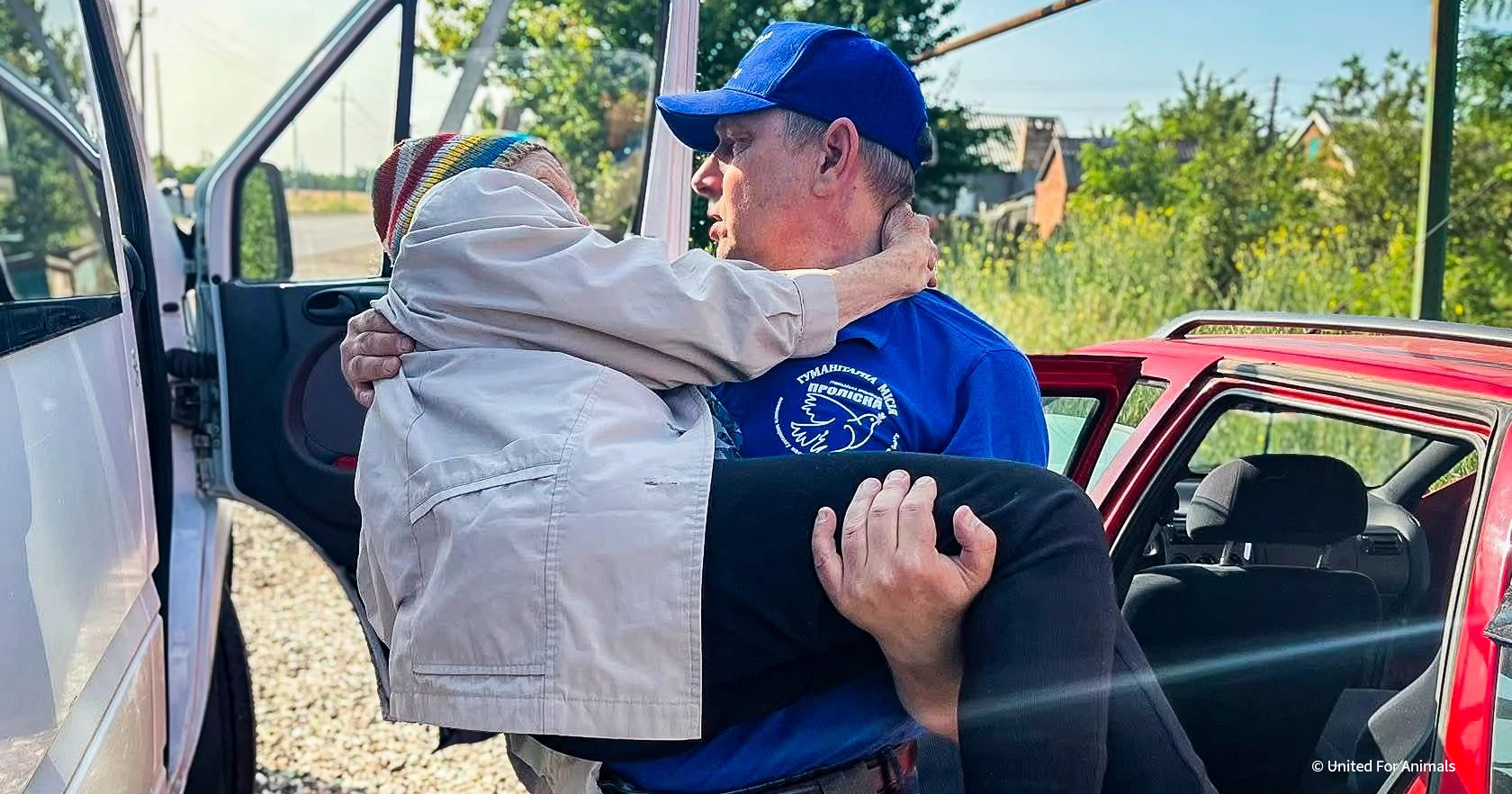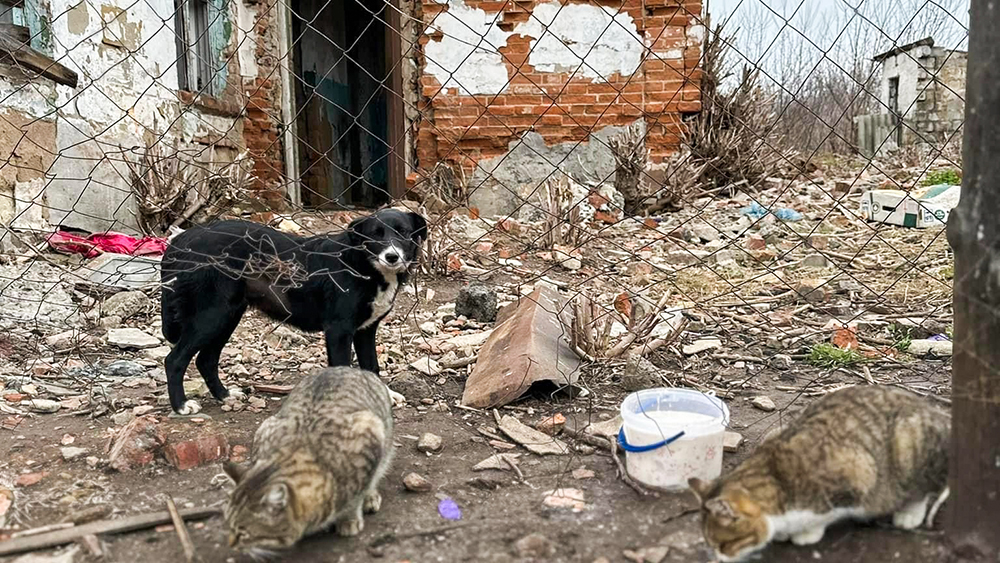Sergey
Sergey was the very first beekeeper our team met back in January 2023, during our initial assessment for our bee relief efforts. At that time, he showed us his destroyed hives. Of the 90 beehives he had before the invasion, only 4 survived.
Sergey was one of the first recipients of our assistance, receiving 20 bee packages, pollen, sugar, and medicine. He now has 40 thriving bee hives, and he donates all the honey he produces to his community.
%20copy.jpg?width=1000&height=563&name=VS-Photograph_20240330_DRI_Ukraine_Beekeepers_SergeyAleynik_002_%C2%A9GGC%20(1)%20copy.jpg)
Photo © Greater Good Charities
Olesya and Vadim
Olesya and Vadim are parents of two young children. Their village was occupied for three weeks and became an active front line for several more. The family hid for weeks in a small underground shelter with seven other family members. Despite the extreme cold, they dared not heat the place for fear of being discovered by the smoke. Eventually, they evacuated, leaving everything behind.
When the family returned to their village almost a year later, their home and all of their hives had been destroyed by shelling. Before the war, they had 110 hives, and beekeeping was their main source of income. They were terrified when they realized they no longer had a way to provide for their family.
Thanks to donor support, Olesya and Vadim received 20 bee packages, pollen, sugar, and medicine and were able to build new colonies. Currently, they have 80 beehives that produce several tons of honey per season.
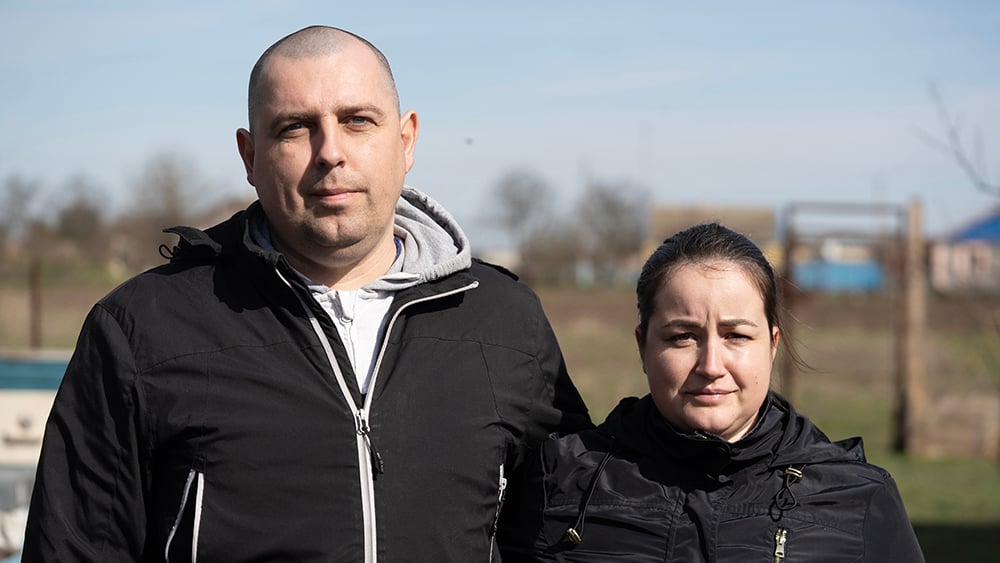
Photo © Oro Whitley
Tatiana
Tatiana became a beekeeper 20 years ago. Beekeeping is not only her main source of income but has helped her through her husband’s death. Now, her bees also help Tatiana cope with trauma from the war. She lost all her hives due to a direct missile attack, as her village was on the front lines for almost 8 months. Tatiana showed us the burnt remnants of her property and the surrounding fields, which are still mined.
Last year, Tatiana received 30 bee packages, as well as pollen, sugar, and medicine. Thanks to the support of our donors, she not only returned to honey production but also expanded her colonies to around 50 hives.
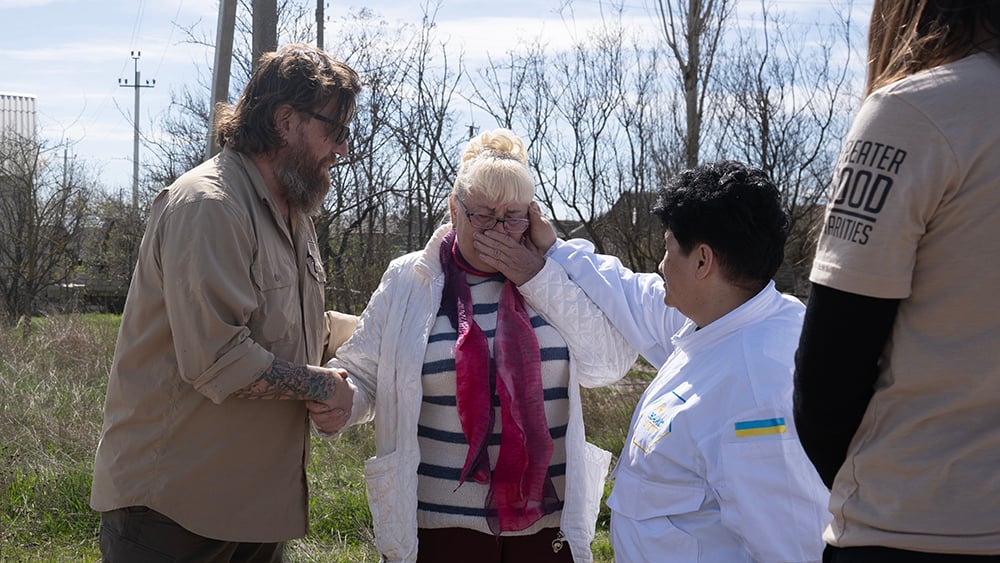 Photo © Oro Whitley
Photo © Oro Whitley
Natalia and Andrey
Natalia and Andrey Savchenko are third-generation beekeepers. They took over their family apiary in 2009 and expanded it significantly to build a business. At the start of the invasion, the Russian army was located about half a mile from their house, posing a severe danger to the family. They were forced to evacuate, leaving their business behind. Of their 100 beehives, only 20 survived.
Last year, they received 18 bee packages and managed to grow their colonies to 60. Due to the ecological disaster caused by the war and the significant loss of bees and other pollinators, Natalia and Andrey are determined to use their colonies to support farmers who are working to rebuild as well. Now, most of their hives are on trailers, ready to be moved to pollinate crops and aid farmers throughout the region.
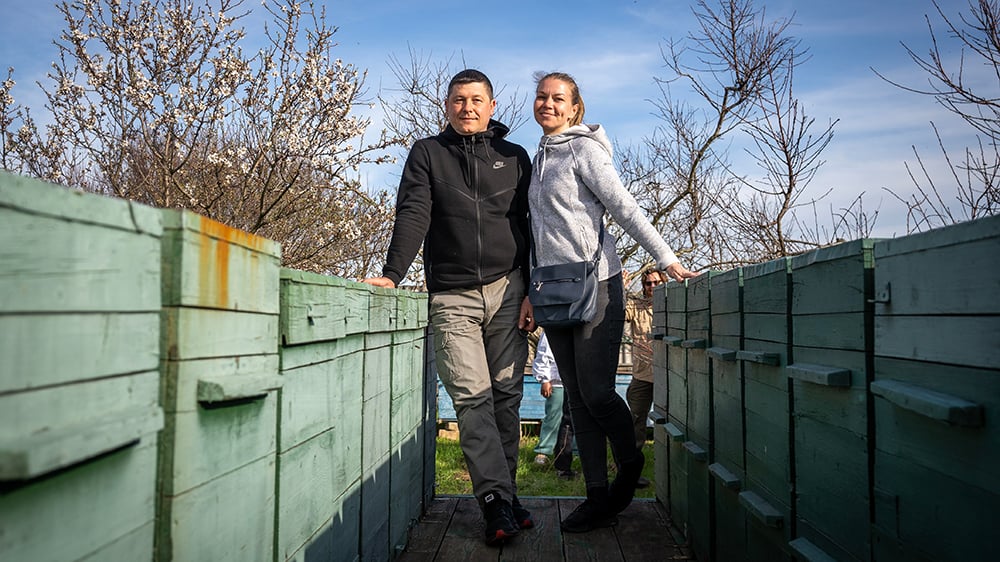 Photo © Oro Whitley
Photo © Oro Whitley
Oleksander
Before the full-scale invasion, Oleksander had 180 bee hives and relied on beekeeping to support his family. However, all his hives were destroyed since they were in a village on the front lines. Unable to afford new hives, Oleksander built them himself.
Last year, Oleksander received 36 bee packages, pollen, sugar, and medicine. Thanks to this support, he not only produced 4 tons of honey last year but also doubled his hives, currently caring for 75 bee colonies.
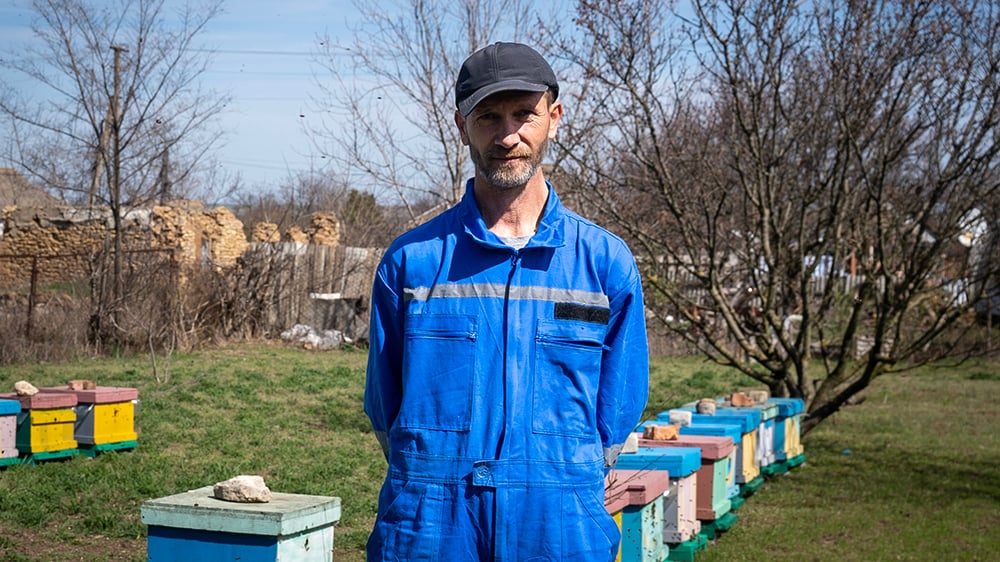 Photo © Oro Whitley
Photo © Oro Whitley
Greater Good Charities’ Ongoing Work in Ukraine
We have been on the ground since the beginning and are committed to long-term support in Ukraine for the people, pets, and planet most impacted by the war. Bees play a critical role in our ecosystem and human food production but are still faced with significant threats in Ukraine.
Greater Good Charities is working with partners to help prevent further loss of bee colonies from destruction and starvation in Ukraine due to the impact of the war. Your support continues to serve as a beacon of hope to those most in need.

%20copy.jpg?width=1000&height=563&name=VS-Photograph_20240330_DRI_Ukraine_Beekeepers_Kravtsovas_031_%C2%A9OroWhitley_GGC%20(1)%20copy.jpg) Photo © Oro Whitley
Photo © Oro Whitley

